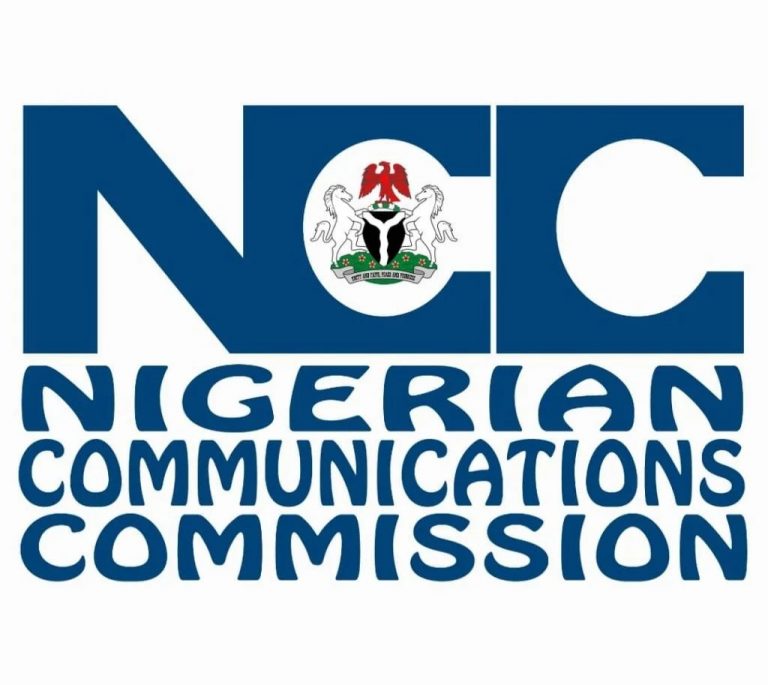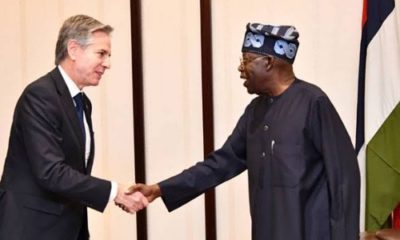Communication
Filling Stations Close, Growing Queues After Tinubu’s ‘Subsidy is Gone’
President Bola Tinubu’s declaration yesterday that the subsidy on petroleum products had been abolished has caused many petrol filling stations nationwide ceased operations and this led to extensive queues forming at the stations.
Following the announcement, motorists in Abuja and neighboring states hurriedly flocked to filling stations, anxiously attempting to refill their tanks. The fear stemmed from concerns that the removal of subsidies would potentially drive the price of Premium Motor Spirit (PMS) above N500 per litre.
Oil marketers had projected that the cost of the commodity could hit N700/litre, once the Federal Government ends subsidy on petrol in June this year.
Retail stations in Lagos , Abuja , Warri and other major cities, also hiked the prices of the product, taking motorists and other Nigerians by surprise.
“It is not out of place to rush and fill your tank now that you can get the product for less than N200/litre, since the new President has declared that subsidy is gone,” a motorist in the long queue at Salbas filling station, Kubwa-Zuba Expressway, who simply gave his name as Ayoola, stated.
In Warri, Delta State, some retailers, including Rain Oil on Warri-Sapele road, which was selling the product earlier for N215, immediately shut down, leaving customers stranded.
It was the same in Shafa petrol station, Enerhen road, which shut their gates to customers, turning back any motorist that attempted to gain access to the facility.
In Lagos, it was learnt that some NNPC stations in Ikeja, Alausa were crowded by motorists who rushed to buy the product as many stations witnessed queues few hours after the announcement.
Tinubu during his inaugural speech at the Eagle Square, had said that there was no more provision for fuel subsidy, arguing that it could no longer be justified.
He posited that he would rather re-channel the funds into better investment in public infrastructure, education, healthcare and jobs that will materially improve the lives of millions. “The fuel subsidy is gone,” Tinubu declared.
Following the comment, also in Abuja, queues were springing up across the capital city, which was just getting some respite from about a year of erratic petroleum products supply.
In a few places where petrol was being dispensed to customers, motorists formed long queues, while those buying in Jerry cans flooded fuel pumps.
However, the vagueness of the announcement has caused more chaos as it was not specified when the subsidy would be removed, giving oil marketers the opportunity to hoard the product to monitor the direction of the market.
Tinubu made a promise during his campaign that if he won, his administration would eliminate the petrol subsidy in order to allocate more funds for stimulating the economy.
Nigeria’s contentious petrol subsidy policy, which has consumed trillions of naira in recent years, is projected to exhaust N3.6 trillion in the first half of this year.
The forthcoming Dangote refinery, set to commence operations in July, is anticipated to guarantee a consistent fuel supply. However, experts suggest that the price of petrol may not experience a significant decrease.
Communication
Nigeria’s Telecom Market Eyes $11.43bn Value By 2029

In a significant market projection, Mordor Intelligence predicts that the Nigerian telecom sector is set to surge to a value of $11.43 billion by 2029.
The report anticipates a steady growth trajectory with a cumulative average growth rate (CAGR) of 4.70% between 2024 and 2029, based on the current market value of $9.09 billion.
The transformation of Nigeria’s telecom landscape, fueled by government initiatives to boost internet infrastructure and broadband connectivity, coupled with rising data consumption, 5G deployments, and innovative strategies from major telecom players, is expected to drive this substantial market expansion.
The report underscores additional factors propelling the growth of Nigeria’s telecom sector, emphasizing the surge in smartphone adoption.
the report said “Increased smartphone adoption in Nigeria has fueled the development of a dynamic digital services sector. Currently, millions of Nigerians use mobile apps, including social networking sites, e-commerce, and financial services.
“These apps could leverage smartphones’ capabilities to offer speed, convenience, and efficiency, encouraging more people to invest in smartphones.
“In addition to these expansions and collaborations, the growing adoption of digital technologies and government support in aiding the same alongside the 5G technology implementation across the country is analyzed to boost the demand for telecom towers significantly.”
“In addition to these expansions and collaborations, the growing adoption of digital technologies and government support in aiding the same alongside the 5G technology implementation across the country is analyzed to boost the demand for telecom towers significantly.”
Mordor Intelligence highlights that the flourishing e-commerce and digital service platforms in Nigeria are significant drivers behind the escalating demand for dependable telecom services in the country.
Communication
MTN Set To Partially Disconnect Glo Network

The Nigerian Communications Commission (NCC) has granted MTN’s request to partially disconnect Globacom (Glo) from its network owing to unsettled interconnect charges.
Reuben Muoka, the NCC’s Director of Public Affairs, disclosed this in a document named ‘Pre-Disconnection Notice’ on Monday.
The move follows Glo’s persistent failure to clear its outstanding debts despite multiple attempts to resolve the issue.
Under this partial disconnection, Globacom subscribers will solely receive calls from MTN users, while retaining access to other network services like outgoing calls to other networks and data services.
However, they won’t be able to initiate calls to MTN users during this period.
The statement read, “All subscribers are, therefore requested to take notice that the Commission has approved the Partial Disconnection of Globacom to MTN in accordance with Section 100 of the Nigerian Communications Act, 2003 and Paragraph 9 of the Guidelines on Procedure for Granting Approval to Disconnect Telecommunications Operators, 2012.
“At the expiration of 10 days from January 8, 2024, subscribers of Globacom will no longer be able to make calls to MTN but will be able to receive calls.
“The Partial Disconnection, however, will allow in-bound calls to the Globacom network,” it added
Communication
Despite Hardship Nigerians Spent N3.33tn On Calls, Data In 2022

Nigerian telecommunication users, along with others within the country, expended a total of N3.33 trillion on various telecom services such as calls, data, SMS, and more throughout 2022, according to the Nigerian Communications Commission (NCC).
This information comes from the recently published ‘2022 Subscriber/Network Data Annual Report’ by the NCC, which also revealed that telecom companies generated N3.33 trillion in overall revenue for that year.
The report further highlights a noteworthy growth of active voice subscriptions, rising from 195,463,898 subscriptions in 2021 to 222,571,568 by December 2022, marking a 13.86% year-on-year increase.
Commenting on the increase, it said, “The increase in the Operators’ subscriber base was attributed to a number of reasons which includes subscriber loyalty, promos, seasonal effects, aggressive consumer acquisition drive, and competitive product offerings across all the networks.”
It noted that the growth in active subscriptions impacted positively on other derived telecom indicators such as teledensity, Internet penetration as well as broadband penetration.
Data usage also continued its surge in 2022. It increased by 46.77 per cent to 518,381.78TB as of the end of the year.
The NCC stated, “There was an increase in the volume of data consumed at the year-end December 2022 when compared with the year-end December 2021.
“The total volume of data consumed by subscribers increased to 518,381.78TB as of December 2022 from 353,118.89TB as of December 2021. This represents an increase of 46.77 per cent in data consumption within the period.”











